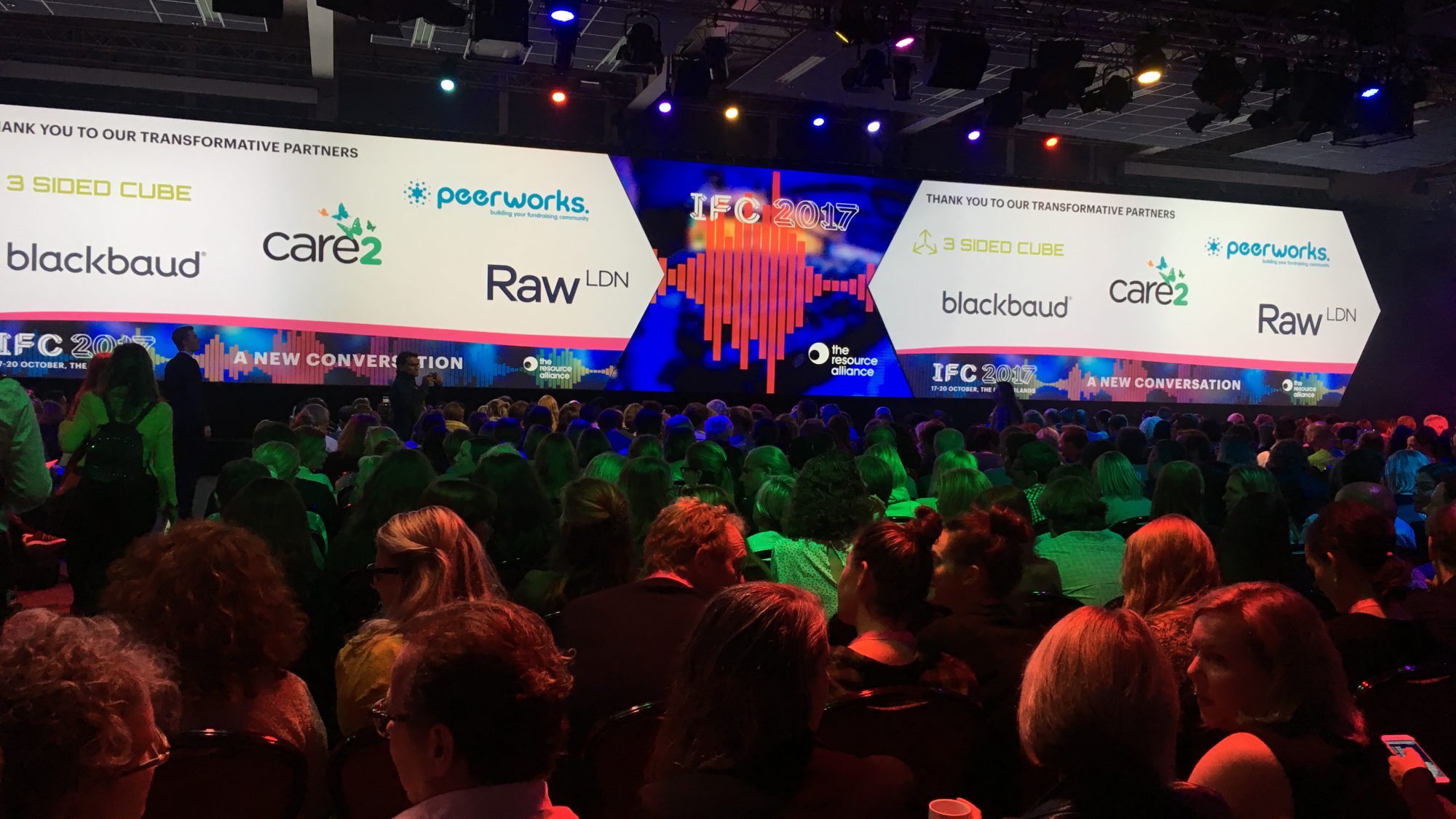

The Raw London team and I have just returned from an inspiring week away at the International Fundraising Congress in Netherlands, hosted by the wonderful Resource Alliance.
For anyone not familiar with the event, IFC is a 4 day residential event attended by the world’s most influential and ambitious fundraisers from charities of all sizes. The incredible programme of events includes over 100 masterclasses, workshops, power-hour sessions and keynote talks from the most in-demand speakers in the sector. Before we share our highlights, take 2 minutes to soak up the atmosphere with this quick wrap video…
Among the highlights were:
We attended as much of the events programme as possible – all the usual subjects were on the menu: digital, mobile, content, social.. but with an ever-increasing amplitude and emphasis on technology.
On that very theme, Paul de Gregorio and Jo Wolfe’s excellent session on Mobile First was certainly a wake-up call for charities who weren’t harnessing the power of mobile-friendly websites and fundraising micro-sites. They also spoke about the growth and effectiveness of the humble SMS for quick-conversion donating. Also familiar was the cyclical (rather than ongoing) investment in web/digital across the sector.
Johnty Gray from Wateraid gave a great session on their move from channel-based acquisition to engagement to acquire new supporters. It was interesting to hear how they successfully break down silos across channels and encourage value exchange when commissioning content – meaning more departments can benefit from higher-quality assets.
Ilja De Coster and Charlie Hume of DonorVoice, talked GDPR with an anxious group of UK based fundraisers. They said, ‘Nothing has caused so much panic or confusion as data protection laws. While some charities have lost millions in their attempt to be compliant, others have buried their head in the sand.’ In a very thorough session, Ilja explained what GDPR is – and what it is not. The topline:
This means that at it’s core, GDPR forces us to think and communicate. Why do we do what we do? Do we need data processing for what we do? What is our legal basis for data processing? What impact do we have on our donors? In terms of collecting that data, Charlie Hume gave interesting insight into influencing the choice to tick or not to tick a box, through the only scientific study into factors influencing supporter consent. The ultimate outcome? Your gut feeling will often be wrong – always test test test the right things in the right way.
Moving onto something fundraisers CAN get excited about – Facebook’s Anita Yeun showcased how the platform is supporting the social impact sector and unveiled some of the new tools available to help fundraisers engage; Ads, Page Header, Page Posts, Fundraisers and Live. These have already been proven to escalate donations through beta tests with Comic Relief, Movember and One Love Manchester, but what struck me was that to really make the most of these new opportunities, content is still key. Finding a balance and shifting gear between entertainment and emotional, authentic stories is what elevated donor response rates and what will prove to be successful in the future.
Zeina Khalil Haff, Executive Director of Greenpeace Mediterranean, gave an enlightened Big Room Session with Brian Fitzgerald, Director of Dancing Fox. Exploring ‘Mischief, magic and mind bombs: Inappropriate guidelines for unacceptable behaviour’, I was blown away with examples that showed how Greenpeace have made a true and real difference, including enlisting hardcore Apple fans to galvanize ‘A Greener Apple’ and giving fashion brands a provocative edge to jolt change in the industry.
Beate Sorum and Kay Sprinkel Grace’s interactive session on differentiating organisational mission, vision and values was also inspiring. They forced us (in the nicest possible way) to take ninety minutes to examine the big picture – existential justification – and how this often gets missed and/or misconstrued in communications. Interesting how difficult it is to distil your reason for existing into a few compelling sentences.
I also featured on the programme, speaking about content strategy in a session named ‘Not Just Pretty Pictures – How to plan, produce and measure effective video content’. We shared insights, experiences and practical advice for planning content across multiple platforms, and showed why taking a strategic approach to both on and offline video content is the best way to see results. To bring it to life, we also explored how one video helped even the smallest of charities reach more than 1 million people and looked at how video is used by larger charities to engage new and existing audiences.
And that’s a wrap for IFC 2017 – check The Resource Alliance website for info on early bird tickets for next year, and how to submit a pitch to host a session.